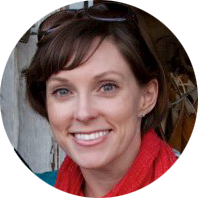How we define ourselves is officially a DIY affair. From selfies on Instagram to gender reassignment surgery, the constant quest for the perfect definition distracts and sometimes undoes us. We are an individualistic, subjective lot. Even our nation and its relatives are having identity crises: Should the New Zealand flag retain a symbol of the British Commonwealth, or should it echo national sporting symbols? Is Britain really part of Europe, or just a cranky neighbour? What will New Zealand become if we let certain individuals adopt it as their home too, and by what criteria do we extend our welcome?
Who are we?
We carefully choose the features that we want to emphasise based on our own preferences and those of the people around us. In an east Auckland cul-de-sac in the 1980s, home to a multicultural bunch of kids, I was proudly half American. We grew up on American TV that offered plenty to idolise – the boys wanted to be CHP officers, the General Lee was the ultimate automobile, and we didn’t know then that Cosby was creepy. Today, as presidential punchlines, racial divisions and violence waft across the Pacific, I honestly don’t mind when people assume that the twang in my accent came from Canada.
We take our lot in life and interpret it, and reinterpret it, to construct the stories we prefer to tell ourselves and others. But each story fits within a greater narrative that we have no control over, as Mike Summerfield has written. This great narrative’s author, whether we have named him or not, is the key to our identity. Beyond our choices in clothes or music, beyond constraints from DNA to human laws, we still have to answer this question: Who does God say that I am?
“If we’re made in God’s image, to know ourselves we must know and understand something about him,” Graham Beynon writes in Mirror Mirror. “Any search for identity that doesn’t begin with God is bound to fail. […] But all around us people are trying to define who they are, what they are worth, and what their significance is, on their own. […] We look within or around us for answers. If we look within, we turn to what we feel or think about ourselves. If we look around us, we turn to our relationships with other people, our roles in life, our possessions or our hobbies or whatever else appeals to us, and we try to find our identity in them. And in doing so we ignore the God who made us.”
Christians emphasise an identity common to all people: created in God’s image. In an era where we are “defined by our differences,” in the words of Os Guinness, Christ’s followers recognise a counter-cultural truth that unites people across racial, economic and gender lines. This isn’t just an abstract idea. This identity is the foundation for all moral defence of justice, for all opposition to discrimination. Since every individual is equally God-imaging, we have equal value – no differences in race, ability or age can ever change the identical sum of every equation.
And we come to know the one whose image we bear by meeting him in the person of Jesus. One facet of Jesus’ life that never fails to blow my mind is that he had to grow up and learn everything from scratch, just as we have to grow up and learn everything from scratch. We come to understand who we are as we find our place in society and history, and he came to understand who he was too – not just as a carpenter’s son in a Jewish village under Roman rule, but in the ancient words of the prophets and psalmists who spoke about him.
He learned that his identity placed him over everyone and everything, but he continued to identify with his creation. He became one of us, giving up what was part of his rightful self. The reason? To gift his identity as a royal child to those who believe in him.
Jesus’ life undermines one of the world’s great lies – the one whispering that salvation lies in sacrificing everything to create and celebrate a self-made identity. Paul tells us, instead, to imitate Jesus’ loose hold on his identity: “Think of yourselves the way Christ Jesus thought of himself. He had equal status with God but didn’t think so much of himself that he had to cling to the advantages of that status […] he set aside the privileges of deity and took on the status of a slave, became human! […] He didn’t claim special privileges. Instead, he lived a selfless, obedient life and then died a selfless, obedient death – and the worst kind of death at that – a crucifixion” (Philippians 2:5-8, The Message).
Paradoxically, Jesus secured the most dazzling identity we’ll ever glimpse by entirely giving it up. The same Father who revoked Jesus’ royal status has now exalted him, and this is expressed through the endless praise of these broken image-bearers for whom he was rejected.
Of course we won’t be always be broken, forming and reforming identities that clash with reality and with each other. We’re becoming both more like him and more truly unique as we learn to submit the less important to the most important. If our identity is primarily in Christ, then it is not primarily in the cultural identifiers that, by nature, we value. I am most true to the “real” me when I am least at home in these places I’ve been called to play a role.
This year Justin Welby, the Archbishop of Canterbury, poignantly expressed the transcendence of the Christian’s identity. He was blindsided by the discovery that his father was not the late Gavin Welby, son of a German Jewish immigrant and his mother’s former husband, but rather a now-deceased aristocrat. In a column, he admitted that he was surprised to find that he is not the man who, for 60 years, he thought he was. But he maintained that this did not fundamentally affect him: “I know that I find who I am in Jesus Christ, not in genetics,” he wrote, “and my identity in him never changes.”






